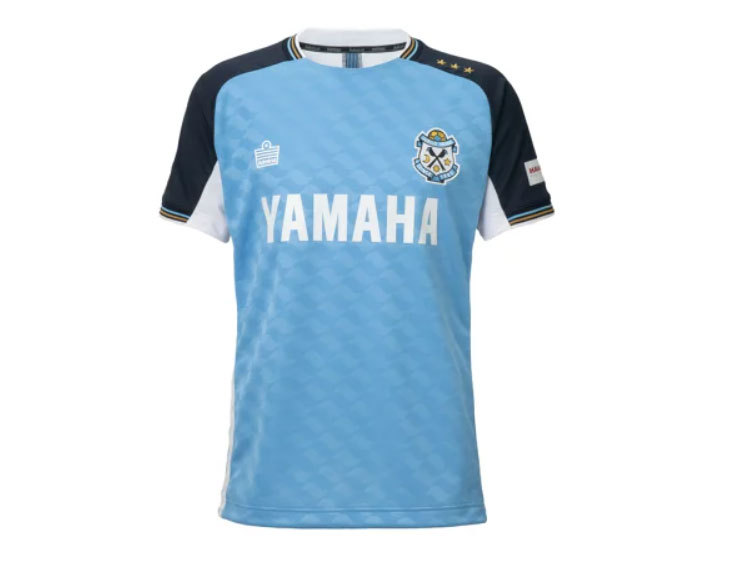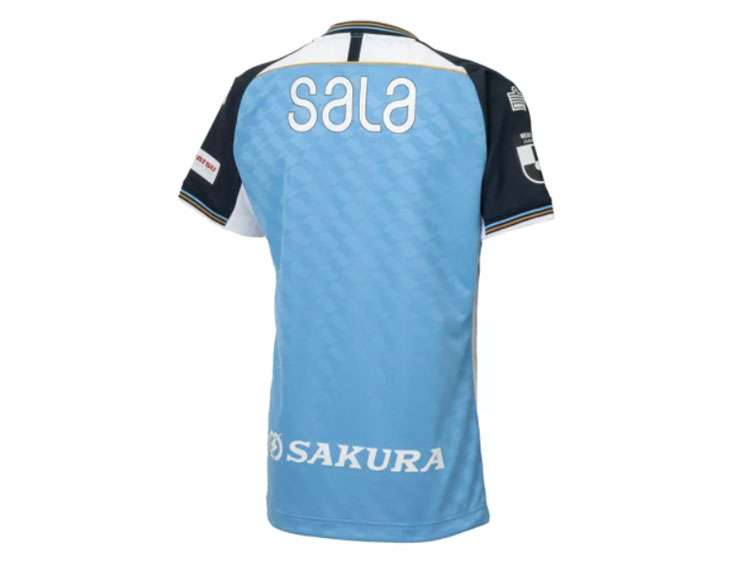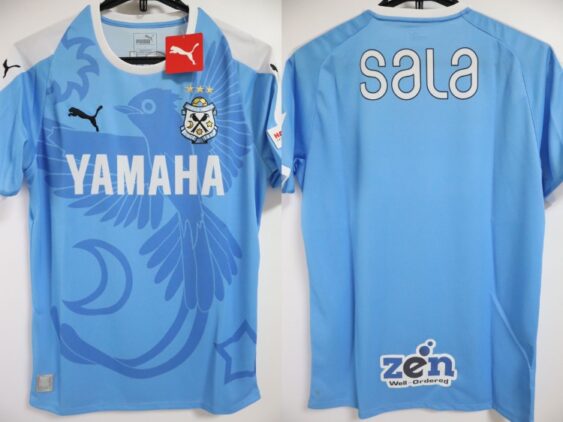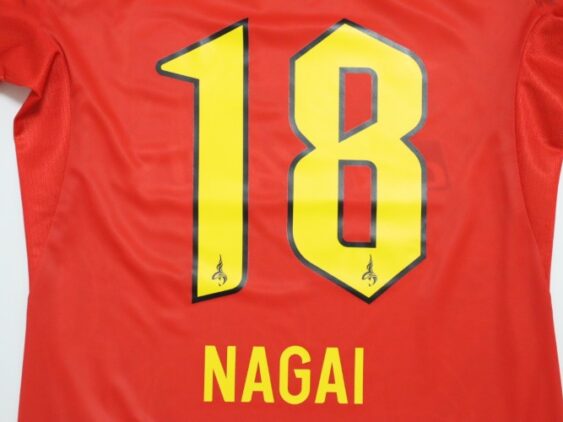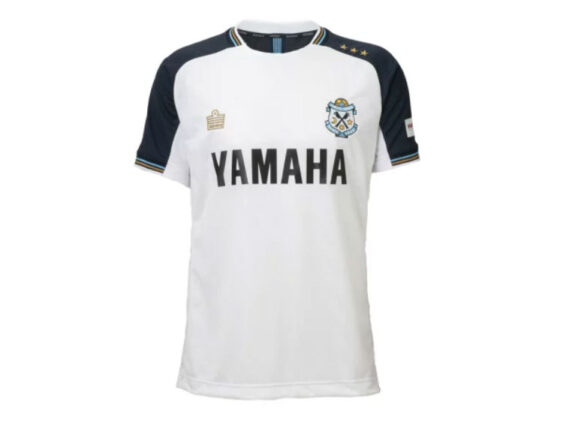Description
Jubilo Iwata is a professional soccer club in the J. League. Their home town is Iwata in Shizuoka prefecture, and their home stadium is the Yamaha Stadium.
The team was originally founded in 1972 as the Yamaha Motor Soccer Club. In 1982, they won the Emperor’s Cup, and in 1987, they became champions of the Japanese Soccer League (JSL).
They were the third club after Yomiuri FC and Nissan Motor Soccer Club to stir up the JSL.
In the beginning of the 1990s, the team was announced to enter the professional leagues, but they missed the chance to join J. League on the first year because their stadium did not meet the J. League standards.
The problem was resolved in 1993 when the Yamaha Stadium was remodeled to meet the necessary criteria. And in the same year, the team finished in 2nd place in JFL’s first division, which secured their promotion to the J. League, and this is when the team name was changed to Jubilo Iwata.
Hans Ooft, former Japanese national team manager, took charge of Jubilo and strengthened the team with well-known foreign players outside of Japan, such as former Netherlands national team player, Gerald Vanenburg; Italian national team player, Salvatore Schillaci; Brazil national team player, Dunga, and others.
Also, thanks to Masashi Nakayama, who was the team’s ace striker since the Yamaha Motor SC days and was the key player behind the team’s promotion to the J. League, as well as new players like Toshiya Fujita, Makoto Tanaka, Daisuke Oku, Hiroshi Nanami, Takashi Fukunishi and Toshihiro Hattori – Players that would all later join Japan National Team squad – the team’s performance drastically improved.
As a result, in their 4th year in the J. League, in 1997, they won the 2nd stage, and then in the championship round, beating the 1st stage champions, the Kagoshima Antlers, to secure their first title – Champions of the year.
After that, Jubilo Iwata reached their golden age. Together with the Kagoshima Antlers, they continued to dominate the J. League, and up to 2005, Jubilo won the J. League championship 3 times, the J. League Cup once, the Emperor’s Cup once, and the Asian Champions League once.
However, Naohiro Takahara, who was named the Top Scorer and the J. League MVP in 2002, was seeking a new challenge and thus transferred to Germany’s Hamburger SV. When he left, Fujita moved to the Netherland team FC Utrecht, and the other regular players, like Fukunishi, Nanami, Hattori, etc., also transferred to different Japanese teams.
Nakayama was also getting on in years and was no longer able to score as much as he used to. Moreover, because the younger players that took their place didn’t have enough talent, gradually the team started sinking into the bottom.
In the final of the Nabisco Cup in 2010, the game went into overtime, where they won 5-3 against Sanfrecce Hiroshima. It was their first title win after a 7 year pause.
Unfortunately, that win was short lived, since every year they sank lower into the double digits by the end of the regular season. By 2013 they ended the season in 17th place and experienced their first relegation to J2.
Jubilo continued to struggle in J2 in 2014, and in order to escape from this crisis, the club hired their former team legend Hiroshi Nanami as manager in the second half of the season on September 25.
Nanami didn’t manage to lead the team back to J1 in one year, but in 2015, they finished in 2nd place and returned to J1, and stayed in J1 in 2016 with the bare minimum results.
Next, in 2017, he brought former Japanese national team player Shunsuke Nakamura and Kengo Kawamata in the team, and with their efforts, Jubilo successfully finished the season in 6th place.
With these results, Nanami raised his status as a manager.
The team’s home jerseys are saxe blue, and since 1997, their supplier has been Puma. Their jerseys have sponsor logos of Yamaha, SALA, zen, Change, and others.

